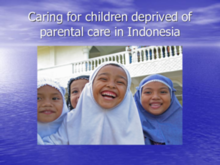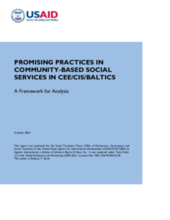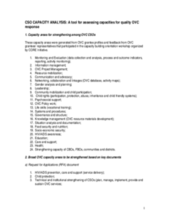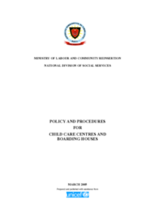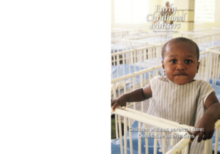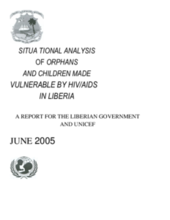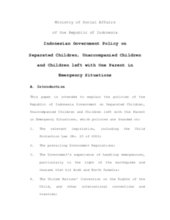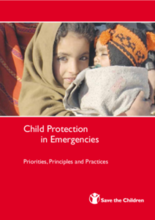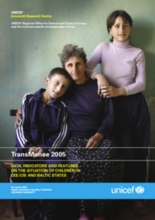Displaying 1671 - 1680 of 1798
This presentation provides an overview of the situation in Indonesia for children without parental care in a post-tsunami context and the alternative care system in the country.
Provides a framework for analysis of community-based social welfare services and linkages with government structures. Includes analysis of alternative care provision, de-institutionalization, programming for children with disabilities, standards of care, and overall social welfare sector reform.
This document provides a tool that was used to assess broad capacity areas for quality OVC response in Uganda.
This document is a guideline to facilitate good policy and practice within institutional care settings for children in Timor. It addresses regulations, registration, standards of care, placement and monitoring.
This is an issue of the Early Childhood Matters journal. Topics include community based care, out of home care, institutional care, mothers in prison, child-headed households, and other issues from around the world
The first situational analysis of children orphaned or made vulnerable by HIV/AIDS in Liberia that provides baseline information for developing national planning processes for OVCs.
A set of standards for residential settings, including the young person’s welcome into care, the quality of care they should receive, contact arrangements, and listening and responding to the views of young people.
Indonesian policy paper on the practice principles for separated and unaccompanied children in an emergency, including guidance on short and long-term care arrangements, tracing, and family reunification
A twelve page policy brief that outlines Save the Children's position on the type of protection children need in an emergency. Contains some statistical information.
This report examines the social and economic trends and challenges affecting children in CEE/CIS and the Baltic States. Social orphanhood, maternal and infant mortality rates, deaths from accidents and injuries, infectious disease, and low public health expenditures are addressed.

